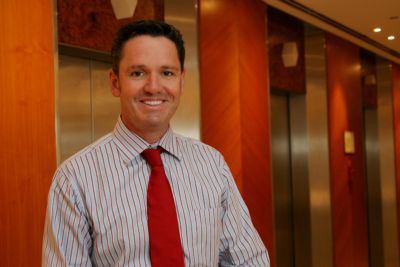
IN THE second half of 2007 when John Sheridan was headhunted for the CEO post at AusGroup, the times were great for the industries that the company serviced. Its clients were enjoying record prices for the mineral resources, and oil and gas that they produced.
Benefiting from that boom, AusGroup’s market value on the Singapore Exchange soared as high as the $1-billion mark as institutional and retail money sought after the stock. The company’s CEO at that time, Mr Stuart Kenny, 55, indicated his desire to step down after leading the company for 10 years.
Mr Sheridan, 42, was then President Director and CEO of PT Petrosea tbk, a company listed in Indonesia, and enjoying much success in turning around the company. He was also a vice-president of the Indonesia-Australia Business Council, which represents the interests of its members in commercial and trade matters between Indonesia and Australia.
Accepting the AusGroup job, he and his family headed back to Perth, where he had grown up and had graduated from the University of Western Australia with a civil engineering degree and a Master’s in Business Administration.
With effect from January 2008, he became the company’s first professional CEO after it had been led by its founding shareholders since 1996.
Unfortunately, the business landscape soon was transformed dramatically by the global credit crisis. It got particularly bad in October when prices of commodities such as iron ore and crude oil plunged, resulting in AusGroup’s clients scaling back some projects or deferring them.
AusGroup’s stock price plummeted to as low as 10 cents in October, dragging its market capitalization to as low as $39 million before rebounding from being deeply oversold (relative to, say, its net asset value of 24.9 Aussie cents) to around $80 million at the end of 2008.
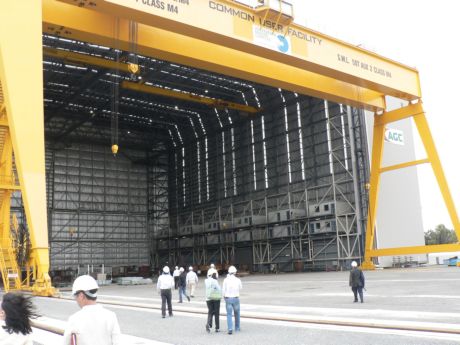
Difficulties lie ahead though, and Mr Sheridan was candid about it at this interview: “The mineral resources sector in Western Australia looks challenging. We see demand for our services reducing. We see clients’ projects being deferred or delayed, though not cancelled.
“That said we remain confident in the sector as it will bounce back. Our clients are typically major blue chip companies. They have no problem funding projects, their consideration is around project economics – driven by supply and demand and the commodity prices.”
A major client, Rio Tinto Group, recently announced it would cut output at its iron ore mines in Western Australia because of reduced demand from steel makers in China.
Mr Sheridan expressed confidence in the oil and gas industry’s fundamentals. That sector’s development projects are longer term and products are forward sold, so the project facilities have to be built and maintained, which is where AusGroup comes in.
AusGroup’s services include building, maintaining and upgrading of infrastructure, plant and equipment used in the extraction and processing of energy and resources.
“A sustained downturn will impact mineral resources and oil and gas, but who’s saying this is going to be a sustained downturn?” asked Mr Sheridan.
“We have a couple of quarters ahead of us where we have to deliver, deliver. That’s when we can start talking a more compelling and believable story to the market. It will believe us when we have got a few successful quarters under our belt,” said Mr Sheridan.
Key catalysts for the stock’s upside include a surge in the prices of hard commodities leading to greater mining activities, and a reversal in the price trend of oil leading to higher offshore exploration and production activities, they said.
Looking back on his taking over the helm at AusGroup, Mr Sheridan said he had encountered some surprises and a few challenges.
He added: “I have rolled up my sleeves and got to work. We reorganized the Australian operations, putting into place a strategic plan on how we are going to get to the next stage.”
He has beefed up work systems and processes, and brought in new talent, including a few people from his previous company.
Then he said with a small laugh: “When I joined AusGroup, its stock price was $1.61. I didn’t do anything to cause the price to come down but have implemented things to improve the business which have not been reflected in the price yet.”
Some institutional investors such as JP Morgan and Deutsche Bank are not waiting around for results. They have considerably lightened their holdings of AusGroup shares, perhaps to meet redemption from clients and perhaps to take into account the impact on AusGroup’s business prospects in the wake of the fall in the prices of commodities.
Asked about the performance of AusGroup’s 100 per cent owned subsidiary, Cactus Engineering, which operates out of Tuas in Singapore, Mr Sheridan said: “We are disappointed. Volumes of sub-sea equipment work have been flat and revenues haven’t grown in line with our expectations. We are working hard to turn this around.”
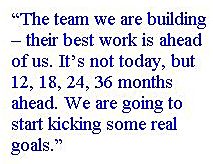
Cactus was acquired in 2006, and contributed about 7 cent to the group’s revenue in the full year to 30 June 2008. The Australian operations servicing the mineral resources sector contributed 70 per cent, while the rest came from the oil and gas sector.
Strangely enough, as Mr Sheridan has discovered, sometimes fund managers and other investors are not entirely clear about where AusGroup makes its money. They have been prone to overemphasizing Cactus’ contribution as well as the oil and gas segment’s.
Passionate about people and strategy
Given the turbulence in global economies and given his relative short period of stewardship of AusGroup, it was pertinent to ask Mr Sheridan about his management style.
His reply: He approach is “inclusive” and he is a team player and leader. “I like the word “we” a lot more than the word “me”.
His strongest attribute, he said, is in working hard to develop a team and working with that team.
“There are two things I am particularly passionate about: people and strategy. Strategy – because I like absolute clarity about where we are going, and we can put an action plan around it and you can communicate that to your people so they know what is required of them.
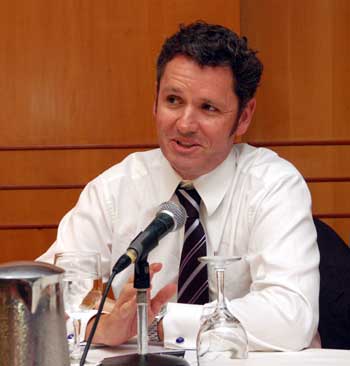
“People – because I believe in the power of great teams. The real competitive advantage of companies these days is their people, and not just one or two individuals who happen to be good.”
Now, if that sounds like a cliché, this is how Mr Sheridan puts it: “Yes, you hear many CEOs say it, but I’m one of those who really get it.”
That is what he attributes the success he achieved in his three years heading PT Petrosea, which provides engineering, construction and contract coal-mining services. Petrosea’s key performance indicators improved substantially during his watch.
“The team I put together there was one of the best I have worked with. I thoroughly enjoyed building a fantastic team and setting a strategic business plan and getting the company on the path towards our goals.”
Early on in his career, he learnt a tough lesson in management when he led a subsea development project.
”I was based in Milan at the time with the rest of the project team was based in Perth. The project was technically demanding, at the time one of the deepest ever FPSO (Floating Production Storage & Offloading) development projects. The project was tough technically and commercially and I drove the project team hard.
”At the end of the project several team members left the company. This caused me to reflect on my management style and was important to me in developing the inclusive style I now have.”
Mr Sheridan does not own shares in AusGroup “but that is not to say I won’t at some point in the future.” In fact, he would have loved to buy when the stock hit 10 cents but could not do so because of a blackout period ahead of the company’s first-quarter results announcement recently.
He, however, has AusGroup stock options, and that is part of the fuel motivating him. But there’s much more – and it comes back to what he had said about developing a great team at work.
“The team we are building – their best work is ahead of us. It’s not today, but 12, 18, 24, 36 months ahead. We are going to start kicking some real goals.”
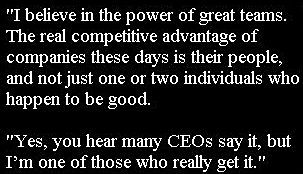
He added: “I take a medium to long-term view. If you are passionate about people, investing in people is a medium to long-term strategy. In a downturn, the last thing I want to cut is any of the development programmes around our people.
“I don’t want to stop recruiting excellent people and developing our people. If that means replacing some people, that’s what I will do. When you have good people, your ability to deliver is multiplied.”
Mr Sheridan is married to Kayla, whom he fortuitously met on the very last day of his five years in university. As he started to recall when they got married, he slipped off his wedding band to confirm the year which was inscribed on it – 1995. That was after seven years of courtship.
The couple have two sons – Hamish, nine, and Thomas, 12. Aside from Jakarta, his family has lived in Milan, London and Bangkok as his career unfolded.
The traveling requirements of his job have not changed materially from the time he was at Petrosea. Instead of traveling to supply bases and coal mining operations in various parts of Indonesia, and climbing volcanoes and surfing for leisure, he now travels frequently – by scheduled flight and car - to remote oil and gas fields and mineral resources mines in Australia.
The rugged outdoors are what he has an affinity for. He has previously worked on oil projects in the South China Sea, the Mediterranean and the North Sea. He could be out at sea for days and months and, yes, it was inevitable that he would experience violent storms.
The exposure could serve him well as he navigates AusGroup through turbulent times.
Recent story: AUSGROUP: 1H09 revenue up 28.8% to reach A$260.5 million






